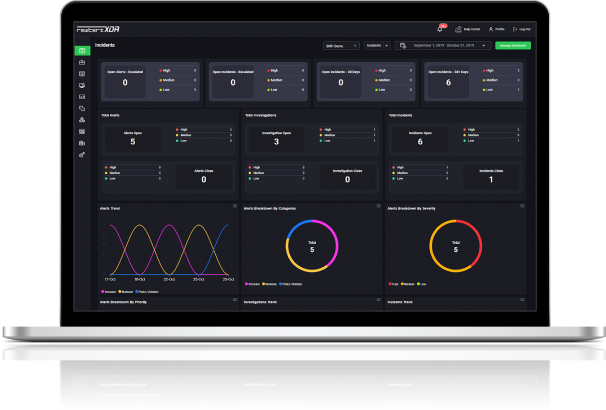

Rewterz Threat Advisory – Red Hat Update for Java-1.8.0-ibm
March 8, 2019
Rewterz Threat Alert – Three Phishing Campaigns Dropping the Emotet Malware – IoCs
March 8, 2019
Rewterz Threat Advisory – Red Hat Update for Java-1.8.0-ibm
March 8, 2019
Rewterz Threat Alert – Three Phishing Campaigns Dropping the Emotet Malware – IoCs
March 8, 2019Severity
Medium
Analysis Summary
CVE-2018-14634
An integer overflow flaw was found in the Linux kernel’s create_elf_tables() function. An unprivileged local user with access to SUID (or otherwise privileged) binary could use this flaw to escalate their privileges on the system. Kernel versions 2.6.x, 3.10.x and 4.14.x are believed to be vulnerable.
CVE-2018-3693
Systems with microprocessors utilizing speculative execution and branch prediction may allow unauthorized disclosure of information to an attacker with local user access via a speculative buffer overflow and side-channel analysis.
CVE-2018-7566
The Linux kernel 4.15 has a Buffer Overflow via an SNDRV_SEQ_IOCTL_SET_CLIENT_POOL ioctl write operation to /dev/snd/seq by a local user.
CVE-2018-3639
Systems with microprocessors utilizing speculative execution and speculative execution of memory reads before the addresses of all prior memory writes are known may allow unauthorized disclosure of information to an attacker with local user access via a side-channel analysis, aka Speculative Store Bypass (SSB), Variant 4.
CVE-2017-0861
Use-after-free vulnerability in the snd_pcm_info function in the ALSA subsystem in the Linux kernel allows attackers to gain privileges via unspecified vectors.
CVE-2018-3620
Systems with microprocessors utilizing speculative execution and address translations may allow unauthorized disclosure of information residing in the L1 data cache to an attacker with local user access via a terminal page fault and a side-channel analysis.
CVE-2017-15265
Race condition in the ALSA subsystem in the Linux kernel before 4.13.8 allows local users to cause a denial of service (use-after-free) or possibly have unspecified other impact via crafted /dev/snd/seq ioctl calls, related to sound/core/seq/seq_clientmgr.c and sound/core/seq/seq_ports.c.
CVE-2018-5391
The Linux kernel, versions 3.9+, is vulnerable to a denial of service attack with low rates of specially modified packets targeting IP fragment re-assembly. An attacker may cause a denial of service condition by sending specially crafted IP fragments. Various vulnerabilities in IP fragmentation have been discovered and fixed over the years. The current vulnerability (CVE-2018-5391) became exploitable in the Linux kernel with the increase of the IP fragment reassembly queue size
CVE-2018-1000004
In the Linux kernel 4.12, 3.10, 2.6 and possibly earlier versions a race condition vulnerability exists in the sound system, this can lead to a deadlock and denial of service condition.
CVE-2018-3646
Systems with microprocessors utilizing speculative execution and address translations may allow unauthorized disclosure of information residing in the L1 data cache to an attacker with local user access with guest OS privilege via a terminal page fault and a side-channel analysis.
CVE-2018-10901
A flaw was found in Linux kernel’s KVM virtualization subsystem. The VMX code does not restore the GDT.LIMIT to the previous host value, but instead sets it to 64KB. With a corrupted GDT limit a host’s userspace code has an ability to place malicious entries in the GDT, particularly to the per-cpu variables. An attacker can use this to escalate their privileges.
Impact
- DoS
- Privilege escalation
- Exposure of sensitive information
- Security Bypass
Affected products
IBM Security Guardium (formerly IBM InfoSphere Guardium) 10.0 through 10.6
Remediation
Vendor has released the patch for the affected product.








